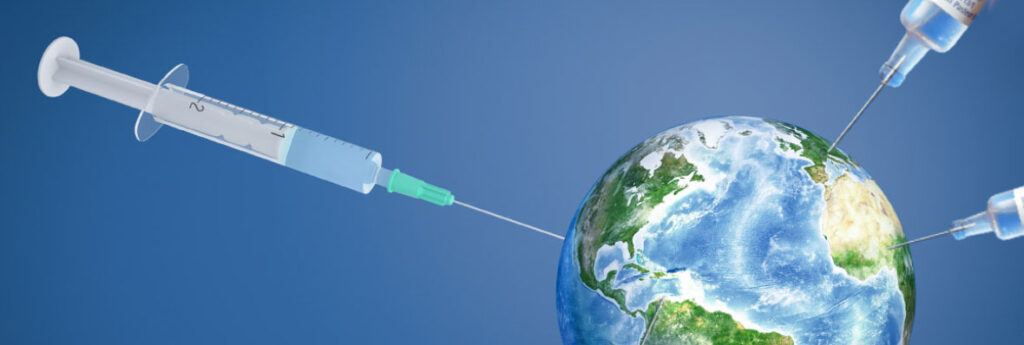The U.N. official spearheading global vaccination efforts against the coronavirus said Monday the number of countries where 10% or less of the population has been vaccinated dropped from 34 to 18 since January and called for accelerated progress to end the pandemic.
Assistant Secretary-General Ted Chaiban told the U.N. Security Council that with over 6 million lives lost to COVID-19 and just over 1 million new coronavirus infections reported to the World Health Organization in the last 24 hours, it is urgent to increase vaccinations in countries where it wasn’t possible to boost rates in 2021.
“The next six months are critical,” he said. “In 2022, we must take the rapid action needed to accelerate vaccination. The window of opportunity is gradually closing. We risk losing the momentum and failing on vaccine equity.”
Chaiban said more than 11.1 billion doses of vaccines have been administered globally, and 124 of the 194 WHO member nations have vaccinated more than 40% of their populations and 51 countries have reached more than 70%.
However, in low-income countries the rate is only 11%, he said. In WHO’s Africa region, 83% of the people remain unvaccinated, and in its eastern Mediterranean region, which includes Afghanistan, 51% haven’t gotten a first jab.
U.N. Secretary-General Antonio Guterres appointed Chaiban, a senior official at the U.N. children’s agency UNICEF, in February to lead a U.N. team to ensure an effective global response to the pandemic and help close the gap in vaccine availability and distribution. It will also provide financial and technical assistance to overcome vaccine bottlenecks.
Chaiban said a just ended campaign in Ethiopia increased vaccination coverage from 4% in January to just over 20%, including in some conflict-affected areas. In the conflict-affected Central African Republic, he said, strong community engagement including focus group discussions, TV and radio spots with leaders and influencers and the mobilization of young people has led to almost 19% of the population being vaccinated.
Chaiban told the council he was speaking by video link from Congo where this week the U.N. team will be meeting with government officials and key partners “to better address the urgent needs and bottlenecks to expanding vaccination coverage across this country of nearly 100 million people.”
Dr. Esperanza Martinez, a senior adviser to the director-general of the International Committee of the Red Cross, said vaccinations and other health-related activities “are incredibly difficult to carry out” in conflict-affected areas.
“The good news is that as the supply of vaccine doses grows, the potential to get jabs in arms grows, too,” she said.
To achieve this, Martinez said, the Security Council should ensure that international humanitarian law requiring the protection of health workers and facilities is respected, makes coronavirus vaccinations part of broader efforts to improve health and strengthens the health systems of conflict-affected countries. He said community involvement in vaccination activities is key to gaining public trust.
“We have seen vaccines expire on airport tarmacs in Afghanistan, Nigeria, South Sudan and several other places,” Martinez said. “Some of these vaccines were wasted because they arrived with too short expiry date, others because the receiving country’s health systems were not ready to distribute them.”
To address the significant vaccine equity gap, the U.N’s Chaiban urged the council to continue supporting two resolutions it adopted calling for cease-fires and increased global cooperation to facilitate access for vaccinations in major conflict areas.
He urged countries to turn US $4.8 billion in pledges at a virtual summit Friday to help lower income countries boost vaccinations “into tangible support” now.
Chaiban also urged council members to advocate for and help guarantee unhindered humanitarian access to deliver vaccine supplies and administer doses and to invest in primary health care “as a key element of future pandemic preparedness.”

